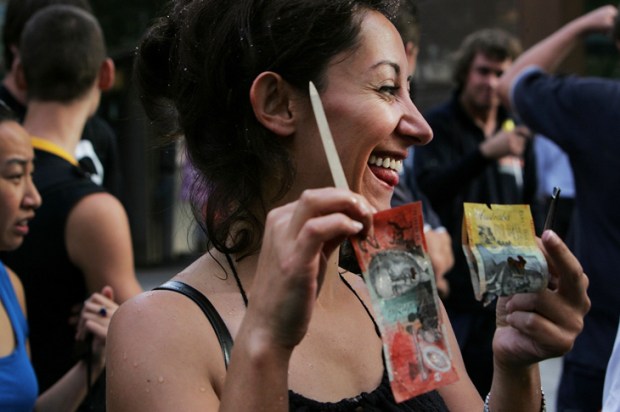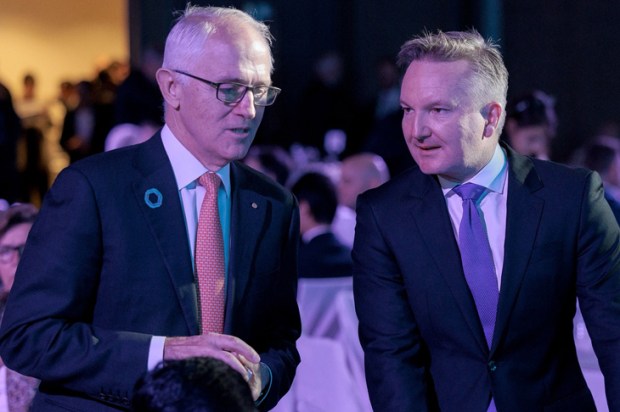Who doesn’t love a koala? So cute, so furry, so cuddly – actually, it’s best not to try to cuddle them because they can be quite uncooperative.
And how amazing are kangaroos? What a sight they must have been to Captain Cook and his crew. (Am I allowed to mention this?) Sure, they got the name wrong but these bounding marsupials are amazing creatures.
As for black swans – were swans not meant to be white? Indeed, black swans gave those early observers from the northern hemisphere such a fright that the term ‘black swan’ has gained widespread currency to mean an unexpected and rare event.
Why am I waxing on about Australia’s unique fauna, you ask. It’s to address what I call the koala factor, the presumption that Australia is somehow special and different from the rest of the world. My argument is that, by and large, Australia lacks exceptionalism when it comes to political, societal and economic issues. Rather than the explanation for most of what is happening in Australia resting simply with internal reasons, we need to look at worldwide trends to gain a full understanding.
I’m sure I’m not alone among Speccie readers when I tell you that I read overseas newspapers and magazines almost as much as I read local publications. Indeed, I can gallop quickly through most of the local rags before I turn my attention to the northern hemisphere. My two favourites are the (UK) Daily Telegraph and the Wall Street Journal. But I’m not too fussy and will read other outlets, particularly when pals send me articles.
I hasten to add that I gave up on the Economist a long time ago – a left-wing, green-obsessed excuse for a magazine, if there ever was. I feel a bit sad at times because the standard of writing, generally without author attribution, was always outstanding; it’s the content that is appalling. I used to enjoy the Financial Times printed on pink paper but that has gone to the dogs recently, along the same lines as the Economist.
The point I want to emphasise here is that the trends we observe here, both good and bad, are not unique to Australia and that, in order to make sense of what is going on, we need to interpret events within an international context. Of course, this doesn’t mean that there are not local considerations as well, or that placed-based factors – to use the current trendy lingo – are irrelevant.
But by reading the international press, the conclusion is quickly reached that Australia is not nearly as exceptional as some politicians and thought leaders – don’t you just love a thought-leader? – portray.
Let’s take the example of multiculturalism. Malcolm Turnbull, former prime minister, was always keen to make the claim that Australia is the most successful multicultural country in the world. He asserted this without any real evidence, but no doubt it played well with his inner-city crowd as well as some of the migrant groups whose votes he wished to attract.
How could such a proposition be judged? To be sure, the Australian population has one of the highest proportions of overseas-born persons in the world – at close to 30 per cent. If we add in persons with at least one parent born overseas, the proportion rises to 50 per cent. By any measure, Australia is a multicultural society.
In Canada, for instance, just over 21 per cent of the population was born overseas; in the US, it’s 15 per cent, in the UK, 17 per cent and in Germany, 19 per cent. Note that in all these countries, the proportion born overseas has increased over the past decade or so. In Germany, for instance, only 12 per cent of the population was born overseas in 2010.
So what makes a successful multicultural society? Can there be a point when multiculturalism has failed? Is Australia really any different from other multicultural societies?
The unquestioning acceptance of different ethnic groups is what most left-wingers use as the indicator of success. Notwithstanding a set of beliefs among some groups that might normally be deemed unacceptable – oppression of women, rejection of LGBTIQ persons, hatred of Jews – the multicultural vibe means that group hugs are always the order of the day. Enjoy the variety of ethnic food outlets and ignore the other stuff.
Of course, this can come to an inherently inconsistent – should we just call it hypocritical? – head from time to time, such as the recent unauthorised demonstration by Palestinian supporters marching on the Opera House and chanting ‘gas the Jews’ and burning the Israeli flag. What were the attending police officers doing? Surely those hate-speech laws were designed with just these instances in mind.
But instead, the police decided to arrest just one man – a law-abiding person carrying an Israeli flag. For his protection, you have to understand. Were these few hours an illustration of a successful multicultural society?
If we look at the composition of the Australian population by country of birth, it’s true that those from the UK are still the highest proportion. But these Poms are ageing and the fastest-growing group is from India. In 2011, those born in India made up 1.5 per cent of the population; in 2021, it was 2.8 per cent. Those born in China are also a relatively large group.
When Australia plays India (or Sri Lanka) in cricket here, the large crowd overwhelmingly barracks for India (or Sri Lanka). That’s probably no big deal but it does tell you something.
When judging the success of a multicultural society, the pace of change matters a great deal as does the extent of intermarriage. There are not good figures on this latter aspect of the population although there are plenty of anecdotes about Indian men, for instance, bringing in brides from their villages back in India. There is also the issue of the locational concentration of ethnic groups in our big cities.
Don’t get me wrong here: the changing face of Australia’s population has many upsides. But the politicians and elites are too scared to make the point that there is an important line in the sand made up of unbreakable Australian values and norms. It is unacceptable for anyone or any group to cross this line irrespective of their background or beliefs.
There simply cannot be different standards where it’s OK, for instance, to claim to stand with Palestine and condone the beheading of babies and killing of innocent civilians. For those who come to this country, it must be made completely clear that we don’t permit discrimination on the basis of gender, sexual preference, ethnicity or religious beliefs. If that’s your bag, don’t come here.
And by the way, English is the official language and citizens should be expected to learn it and use it. The fact that Covid and referendum material had to be translated into multiple languages, because certain groups in the community wouldn’t understand, tells us a lot.
Got something to add? Join the discussion and comment below.
Get 10 issues for just $10
Subscribe to The Spectator Australia today for the next 10 magazine issues, plus full online access, for just $10.
You might disagree with half of it, but you’ll enjoy reading all of it. Try your first month for free, then just $2 a week for the remainder of your first year.














Comments
Don't miss out
Join the conversation with other Spectator Australia readers. Subscribe to leave a comment.
SUBSCRIBEAlready a subscriber? Log in